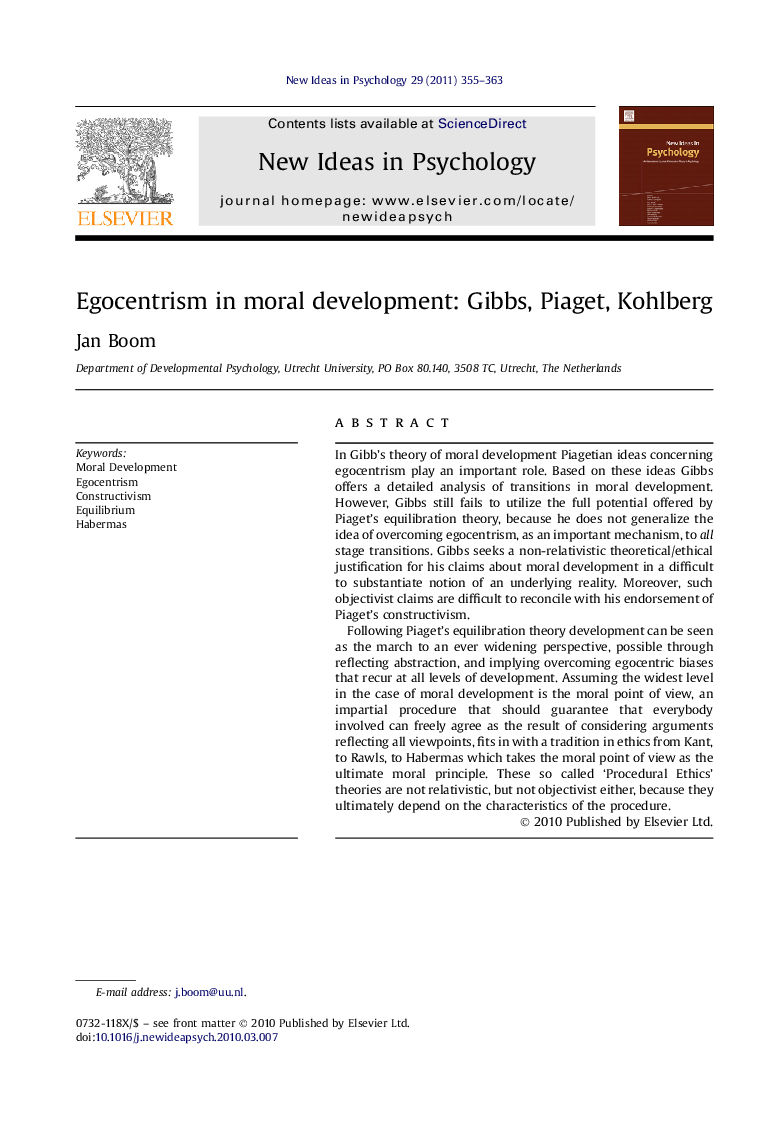| Article ID | Journal | Published Year | Pages | File Type |
|---|---|---|---|---|
| 331490 | New Ideas in Psychology | 2011 | 9 Pages |
Abstract
Following Piaget’s equilibration theory development can be seen as the march to an ever widening perspective, possible through reflecting abstraction, and implying overcoming egocentric biases that recur at all levels of development. Assuming the widest level in the case of moral development is the moral point of view, an impartial procedure that should guarantee that everybody involved can freely agree as the result of considering arguments reflecting all viewpoints, fits in with a tradition in ethics from Kant, to Rawls, to Habermas which takes the moral point of view as the ultimate moral principle. These so called ‘Procedural Ethics’ theories are not relativistic, but not objectivist either, because they ultimately depend on the characteristics of the procedure.
Related Topics
Social Sciences and Humanities
Psychology
Developmental and Educational Psychology
Authors
Jan Boom,
